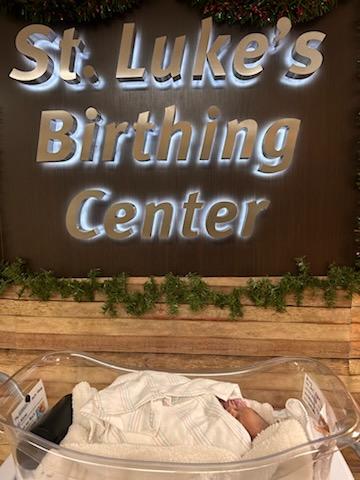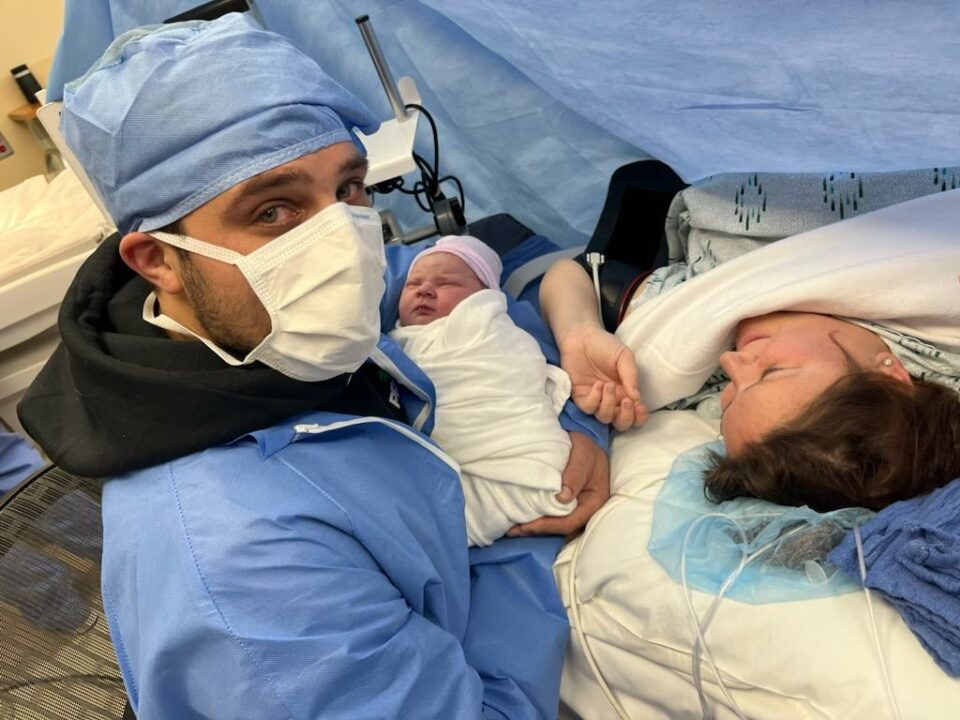Remote rural areas of northern Minnesota, like Cook County, offer residents a unique balance of advantages and disadvantages. While most enjoy convenient access to nearby trailheads, boat landings, and vast national forests, the trade-off is often limited specialty healthcare services or higher-priced goods at the local grocery store.
Nearly 10 years ago, in 2015, the small rural North Shore town of Grand Marais lost a critical healthcare service: birthing and obstetrics (OB) care. Since the change nearly a decade ago, most expecting mothers and families have had to adapt by traveling 110 miles on Highway 61 to Duluth for prenatal care and to give birth.
In 2015, the Board of Directors of the Cook County North Shore Health Hospital voted to discontinue elective OB delivery services. The decision originated from a Nov. 2014 report from Coverys, the medical malpractice/professional liability insurer at the time. The report determined that the hospital did not meet the standards of care for OB services.
The North Shore Health Board said the quality of care was not the issue or reasoning behind the decision; instead, the insurer report identified a requirement based on liability concerns to have emergency cesarean section services available. The small rural hospital then determined it was financially and logistically unable to meet the requirement, effectively discontinuing OB services.
Malorie Brazell, a Grand Marais resident and recent first-time mother, said the limited healthcare options and loss of the OB services is one of the realities of living in a rural location, like Grand Marais.
Brazell, who worked as a laboratory technician at North Shore Health during the change, said she sees the loss of OB services at the local North Shore Health Hospital as just one of the many trade-offs of living in her rural hometown.

As the OB services change took effect, Brazell said she understood the reasoning behind the decision. “I understood the safety aspect part of it.”
In the event of a pregnancy complication, Brazell said the hospital was not equipped to conduct an emergency cesarean section, creating a liability. Instead, a pregnant mother would have to be flown via Lifeflight or put in an ambulance to make the two-hour trip down the shore to Duluth. “If things do go wrong, time is of the essence.”
For Brazell, that proved to be the case when she gave birth to her daughter Morgan five months ago, in December 2023.
As a first-time expecting mother, Brazell chose to visit St. Luke’s in Duluth for her prenatal care and checkups. Early on in her pregnancy, she discovered her daughter had a marginal placenta attachment, an abnormal attachment of the umbilical cord that can lead to various pregnancy complications.
“She needed additional ultrasounds and monitoring throughout the pregnancy in case that became an issue,” Brazell said. Throughout the nine months, Brazell and her husband frequently drove the four-hour round-trip to and from Duluth for her appointments. She said she was fortunate that her current employer, Visit Cook County, was willing to accommodate her appointments and provide flexibility in her schedule throughout her pregnancy.
Then, in December, during labor, Brazell experienced additional complications that led doctors to conduct an unexpected cesarean section. She said she felt incredibly thankful she was surrounded by a knowledgeable and supportive staff of OB doctors throughout the 29-hour labor and six days in the hospital.
“So, if I didn’t have a cesarean section available, it could have been detrimental to my and her situation,” she said. “If I wasn’t in Duluth, it could have been a bad situation.”
She said if she had given birth in Grand Marais when the complications arose, it would have been a “completely different experience.”
Despite the complications, lengthy labor, and time spent in the hospital afterward, Brazell’s experience at St. Luke’s “was awesome.” She said all of the providers and staff provided a five-star birthing experience. “All the staff in the OB unit were amazing.”
For many expecting mothers along the North Shore, like Brazell, St. Luke’s is a safe and trusted option for pregnancy care and services. It requires more of a time and transportation commitment, but for first-time mothers or mothers with pregnancy complications, Brazell said it is an excellent option. Another great option in Duluth is Essentia Health.
While Brazell chose to travel to Duluth for all of her pregnancy care, she acknowledged that expecting mothers can access services at the Sawtooth Mountain Clinic in Grand Marais.

The Sawtooth Mountain Clinic offers various family planning services, prenatal care, and, if needed, referrals for mothers with pregnancy complications.
“Somebody can start with us at any part of their journey,” Hannah Miller, the parent-child health nurse at Sawtooth Mountain Clinic, said. “Having somebody here at home that you can trust and see and have built that relationship with over time is really valuable just from an access standpoint.”
Miller said in the early stages of pregnancy, the frequency of needed visits can be a transportation burden for mothers and families. If time or transportation to Duluth is limited, she said the accessibility of nearby care and services is “really important.”
To help fill the prenatal care gap in rural communities, another growing avenue for expecting mothers in recent years is a midwife. A certified professional midwife assists with and provides prenatal, labor, birth, and postpartum care. A certified midwife is another viable option for expecting mothers without complications and those seeking a home birthing experience. A 2016 study published in the Journal of Midwifery & Women’s Health found that in rural maternity hospitals, midwives practiced alongside obstetricians in 86 percent of hospitals and alongside family practice physicians in 44 percent of hospitals.
Despite the loss of OB services at North Shore Health Hospital in Grand Marais and numerous other rural hospitals across Minnesota and the U.S., expecting mothers in rural communities seem to be learning to adapt and accept the trade-offs of living in a remote small town.






